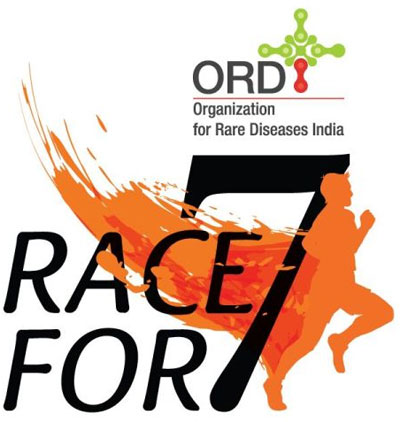Time is considered to be one of the most precious elements for humans. In the case of people suffering from rare diseases, the criticality of time cannot be overemphasised because every day of delayed treatment equates to one day deducted from their lifespans.
In May this year, the Ministry of Health and Family Welfare declared a special provision of Rs50 lakh for providing financial support to patients with all categories of rare diseases. Accordingly, designated Centres of Excellence (CoEs) were notified in the National Policy for Rare Diseases 2021 and authorised to receive this money and prioritise patients for treatment.
Presently, there are eight CoEs across India, with three more likely to be added in Kerala, Tamil Nadu and Rajasthan. Patients selected by CoEs for treatment are eligible to receive this aid. Earlier, a one-time grant of Rs20 lakh was provided under the Rashtriya Arogya Nidhi Umbrella Scheme for the treatment of patients with rare diseases characterised as Group 1 Disorders under the Policy.
Nonetheless, formal notification to this effect is awaited since it will provide clarity about the implementation. Patients and their caregivers are keen to know the details about the source of funding and the procedures involved for availing of this treatment. Besides, it is vital to know whether this support will be one-time or sustained.
Rare diseases comprise a complex field where lack of adequate awareness remains a challenge among both the public and physicians. These diseases include blood disorders, rare cancers and autoimmune conditions, to mention a few. Although more than 450 rare diseases have been identified in the country, less than 50% of these are treatable. Currently, DCGI (Drugs Controller General of India) approved treatment is available only for around 12-15 rare ailments. These include LSDs (Lysosomal Storage Disorders) such as Gaucher disease, Pompe disease, MPS I and Fabry disease.
Steep treatment costs are the biggest barrier to managing rare disorders. Although the Central Government bears part of the treatment costs, a substantial percentage is borne as out-of-pocket expenses by patients.
Why every day counts
Treatment for eligible patients must be prioritised as the early intervention will not only saves lives but ensure these people lead relatively normal lives. Therefore, the Ministry of Health and Family Welfare must spell out the measures available for sustainable treatment support for patients with disorders having approved treatment in India backed by clinical evidence.
As defined in the National Policy for Rare Diseases 2021, notified in March this year, LSDs are classified under Group 3(a) – diseases where sufficient evidence exists for good long-term outcomes. Interestingly, Group 3(a) conditions such as Gaucher disease, Pompe disease, Fabry disease and Hurler Syndrome – Mucopolysaccharidosis (MPS Type I and MPS II) – are treatable conditions for which DCGI-approved treatment is available for a long time.
Unfortunately, while 339 patients diagnosed with rare genetic conditions, primarily LSDs such as Pompe disease, Gaucher disease, Fabry disease, and MPS I, have been qualified as eligible by the eight designated CoEs after the necessary diagnostic tests and physical examination, patient support groups confirm that not a single patient has so far been put on treatment. Considering that every day counts in managing and improving the condition of such patients, this delay is most regrettable.
Significantly, states such as Tamil Nadu, Kerala, and Karnataka are providing treatment support to patients of rare diseases by mobilizing their own resources. Nevertheless, to ensure the sustainability of treatment, these states need to have annual budgetary provisions for treating rare diseases. For this, the annual amount may not exceed Rs15 to Rs20 crores. The Centre’s contention that funds are a constraint does not wash because India’s public health segment has for long faced hurdles arising from unused allocations.
Given the latest announcement offering treatment support of Rs50 lakh by the Union Government, states with people suffering from rare diseases must take speedy steps to create Centres of Excellence whereby most patients can avail of treatment at the earliest. Without CoEs, states will lose out on the benefit of the latest amendment stipulating Rs50 lakh treatment support for rare disease patients.
Even as patients have waited for government support in treating their rare disease, more than a few of them, most often children, have lost their lives. Lack of immediate implementation of funding support initiatives for treating eligible patients with treatable conditions could end in the death of many. Therefore, time is of the essence in saving the precious lives of such patients.
Link for original article :https://timesofindia.indiatimes.com/blogs/voices/need-for-urgency-in-treatment-for-rare-diseases/



